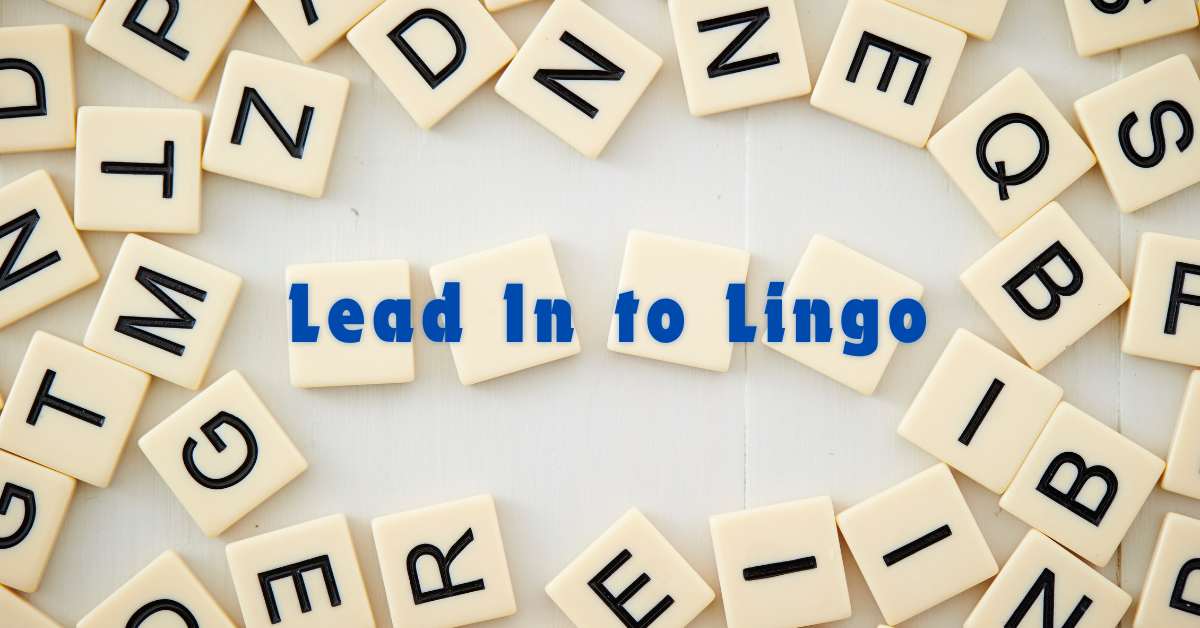What Does “Lead in to Lingo” Mean?
“Lead in to lingo” is a phrase commonly found in crossword puzzles. In these puzzles, “lead in” typically refers to a word or phrase that precedes or introduces another term, which in this case is “lingo.” “Lingo” itself denotes specialized language or jargon specific to a particular group or profession. When these words appear together in a crossword clue, it often prompts the solver to identify a word that naturally precedes “lingo” to form a recognizable expression or phrase.
The Role of Wordplay in Crosswords
The Art of Crafting Clues
Crossword puzzles are a quintessential form of wordplay, designed to challenge the mind and expand one’s vocabulary. Clues like “lead in to lingo” exemplify the clever use of language, requiring solvers to think beyond the literal meaning of words and consider how they function together in common expressions. This type of clue is known as a “wordplay clue,” where the solver needs to deduce the meaning from indirect hints rather than straightforward definitions.
The Importance of Context in Crossword Puzzles
In crosswords, context is everything. The same word can have multiple meanings depending on how it’s used, which adds to the complexity and enjoyment of the puzzle. For instance, in the case of “lead in to lingo,” the challenge lies in identifying the word that can naturally precede “lingo.” This requires not only a good grasp of vocabulary but also an understanding of how words interact within specific contexts.
Common “Lead in to Lingo” Clues
Popular Examples in Crossword Puzzles
There are several common words that often serve as the “lead in” to “lingo” in crossword puzzles. Some of these include:
- Tech: As in “tech lingo,” referring to the jargon used in the technology industry.
- Legal: As in “legal lingo,” describing the specialized language used in legal professions.
- Office: As in “office lingo,” which refers to the terminology commonly used in a workplace environment.
Variations and Tricky Clues
Crossword setters often enjoy throwing in variations to keep solvers on their toes. For example, instead of the straightforward “lead in to lingo” clue, they might use a more abstract or cryptic clue that requires deeper thought and lateral thinking. This variation is what makes crossword puzzles both challenging and addictive.
The Broader Significance of “Lingo”
Lingo as a Cultural Indicator
“Lingo” is more than just jargon; it’s a cultural indicator that reflects the identity, values, and practices of a particular group. Understanding the lingo of a group can provide insights into its inner workings, priorities, and social dynamics. This is why crossword puzzles often incorporate lingo—solvers not only test their vocabulary but also their cultural awareness.
The Evolution of Lingo
Lingo evolves over time as language adapts to new technologies, social changes, and cultural trends. For example, the rise of the internet and social media has introduced new lingo that would have been incomprehensible a few decades ago. Words like “selfie,” “hashtag,” and “viral” are now common lingo in the digital age.
How to Master “Lead in to Lingo” Clues
Tips for Solving Crossword Puzzles
Mastering “lead in to lingo” clues—and crossword puzzles in general—requires practice, patience, and a few strategic approaches:
- Expand Your Vocabulary: The more words you know, the better equipped you’ll be to solve crossword puzzles. Read widely and pay attention to the specialized language used in different fields.
- Think Laterally: Don’t always take clues at face value. Consider multiple meanings of words and how they might fit together in unexpected ways.
- Learn Common Patterns: Some clues and answers appear frequently in crosswords. Familiarize yourself with these patterns to improve your solving speed and accuracy.
Resources for Improving Crossword Skills
There are numerous resources available for those looking to sharpen their crossword-solving skills:
- Crossword Puzzle Books: These books often contain a range of puzzles from easy to difficult, allowing you to gradually build your skills.
- Online Crossword Platforms: Websites and apps offer daily puzzles and allow you to practice on the go.
- Crossword Communities: Joining a crossword community can provide you with tips, support, and a sense of camaraderie with fellow enthusiasts.
The Joy of Solving “Lead in to Lingo” Clues
The Satisfaction of a Completed Puzzle
There’s a unique sense of satisfaction that comes from solving a tricky crossword puzzle, especially when you crack a challenging “lead in to lingo” clue. It’s a moment of triumph where your linguistic skills, cultural knowledge, and logical thinking come together.
The Educational Value of Crosswords
Beyond the fun, crossword puzzles are an excellent way to keep your mind sharp. They improve vocabulary, enhance problem-solving skills, and offer a gentle way to exercise your brain. Whether you’re a seasoned solver or a newcomer, each puzzle presents an opportunity to learn something new.
Conclusion
The Enduring Appeal of “Lead in to Lingo”
“Lead in to lingo” is more than just a crossword puzzle clue—it’s a window into the world of language, culture, and the ever-evolving nature of communication. By mastering these clues, you not only become a better puzzle solver but also gain a deeper appreciation for the richness of language. So the next time you encounter a “lead in to lingo” clue, take a moment to savor the challenge and the journey it represents.
Read More: Trivise/General








